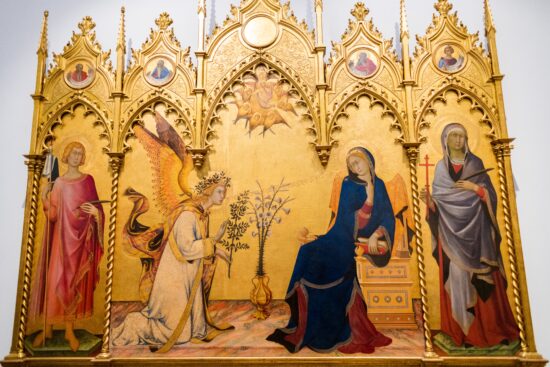-
What’s Amazing about the Annunciation!
Trigger warning: sexual assault How we experience life embodied as sexed beings affects how we read the biblical text. So how do many women do so? We do so as those who have (a) been violated ourselves or (b) as those who live in close proximity with someone who is a survivor of such violation. According to RAINN, one out of every 6 American women has been the victim of an attempted or completed rape in her lifetime. Contrast this with the one in 33 American men who have been victims of attempted or completed rape. Women are raped more than five times as often as men. And neither of these statistics…
-
Lessons from the Gospel of Luke
My publisher (AMG) has just added Latte with Luke to Mocha on the Mount, Java with the Judges, Espresso with Esther…. This seven-week study in Luke’s Gospel makes number twelve in my Coffee Cup Bible Study series. With this release the series re-launches with a great new cover and, even more fun, the endorsement of fellow bible.org contributor, Kelley Mathews, on the front cover. What’s in it for you, my faithful Engage readers? Four free excerpts from devotionals in the study: One about Zaccheus Remember Lot’s Wife The Bent-Over Woman Jesus Healed Mary Magdalene: Mary from Magdala or Mary Tower? What Makes Luke’s Gospel Unique Matthew, Mark, and John were Jewish; Luke was a…
-
Welcome the Outsider
Of the four Gospel writers—Matthew, Mark, Luke, and John—Luke devotes the most real estate to women. And he does so as a larger pattern of highlighting Jesus’s ministry to “outsiders.” Luke’s original audience would have seen themselves as insiders, and he pressed them to be like Jesus and open their sphere of community. Here’s a sampling: Widow bereft of her son. A widow lost her only son. Few were more vulnerable than widows. Especially those who had no male relatives. But Jesus raised him back to life and restored him to his mother (Luke 7:11–17). Widow who gave her mite. Jesus commended the actions of a widow who put all she had in…
-
Nain: The Perfect Setting
Like the mansion “Downton Abbey,” the setting itself played such a role in Shunem’s story that it functioned almost as an independent character. Shunem’s people took pride in its heritage: About 800 years before Christ, Elisha had brought a woman’s dead child back to life here. Elsewhere some years before that, Elisha’s mentor, Elijah, had restored to life a widow’s only son. And afterward, the biblical text records, “Elijah gave him to his mother" (1 Kings 17:23). So Elisha’s miracle at Shunem was not the first time a prophet had raised a woman's child, but it was certainly the last. Just on the other side of Shunem’s hill, assuming we…














